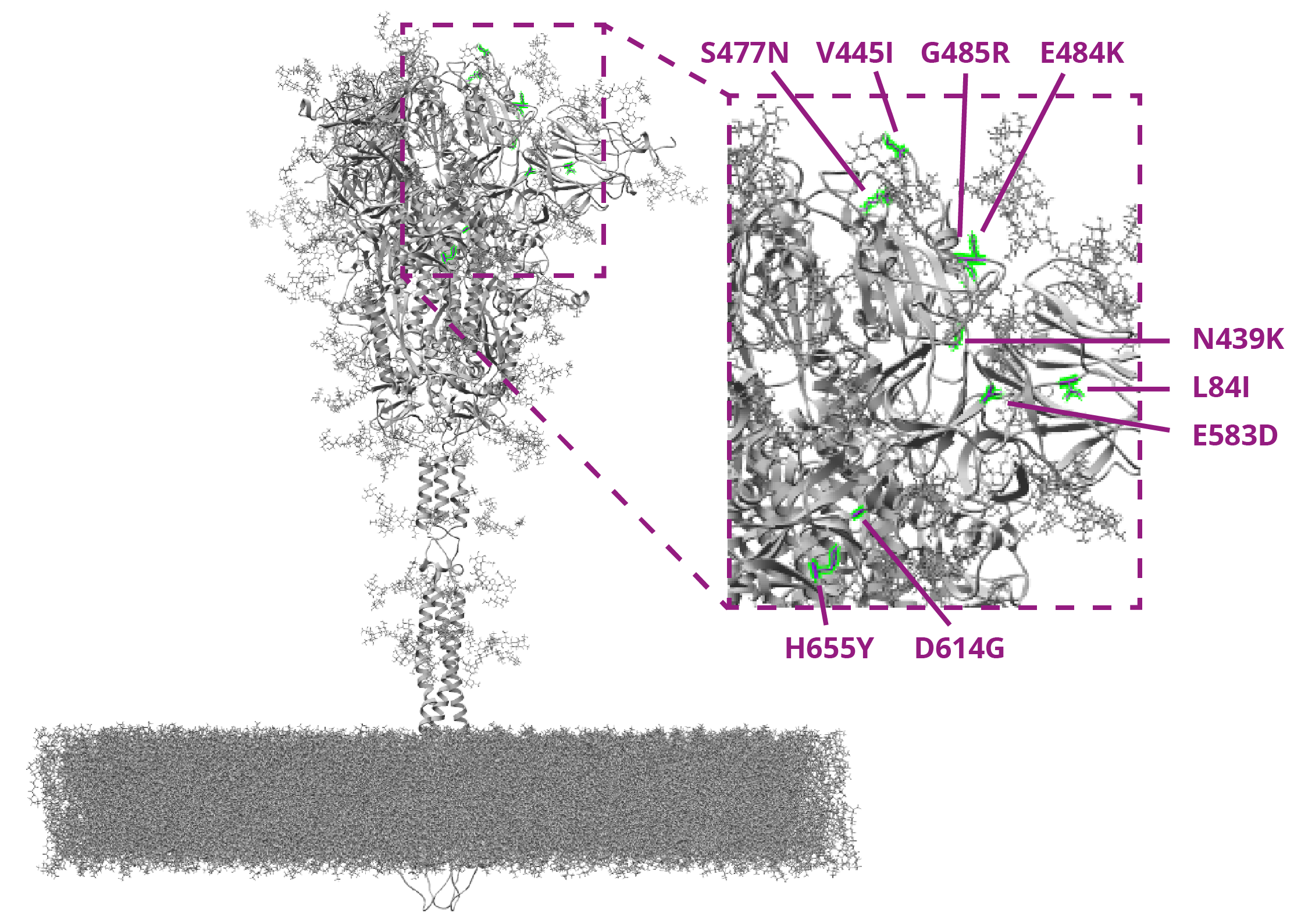SARS-CoV-2 Spike S1 Mutants
The Native Antigen Company now offers a range of five Spike S1 mutants, based on common SARS-CoV-2 sequences, all of which include the D614G mutation. These mutants can be used to investigate differences in binding affinity to ACE2 and anti-Spike antibodies in basic research or the development of SARS-CoV-2-specific countermeasures. Click here to see our full coronavirus range.
Spike Mutants

3D structure of Spike trimer embedded in lipid bilayer.
Mutants are shown green and labelled accordingly.
Custom Services
The Native Antigen Company also offers a range of custom services, including the development of bespoke SARS-CoV-2 protein mutants via site-directed mutagenesis. In addition, we also offer antibody generation and immunoassay development services to provide further support to your research.
To discuss our custom service offering, click the link below:
Our Coronavirus Range
The Native Antigen Company offers an extensive and growing range of SARS-CoV-2 antigens, suitable for a variety of applications, including assay development, vaccine screening, neutralisation testing, immunofluorescence, surface plasmon resonance and academic research.
We also offer a variety of monoclonal and polyclonal coronavirus antibodies for use in immunoassays, Western blots, neutralisation assays, surface plasmon resonance and X-ray crystallography. Anti-SARS-CoV-2 Spike (CR3022) IgG antibodies are available in both humanised and rabbit-derived forms, in addition to a humanised IgM. An anti-Spike IgA monoclonal with affinity for the SARS-CoV-2/SARS-CoV RBD is also available.
The Native Antigen Company also offers an extensive and growing range antigens for SARS-CoV-2, SARS-CoV, MERS-CoV, HCoV-OC43, HCoV-NL63, HCoV-229E and HCoV-HKU1. These antigens are suitable for a variety of applications, including assay development, vaccine screening, neutralisation testing, immunofluorescence, surface plasmon resonance and academic research.
